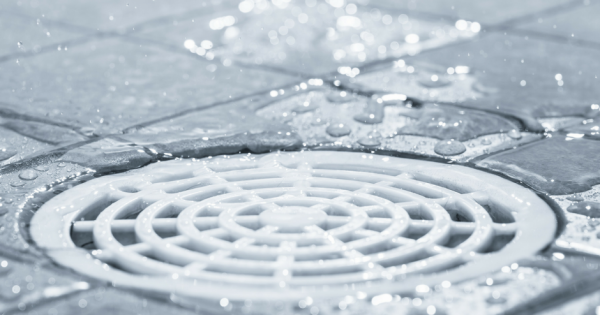Methods for Managing a Blocked Drain Before Hiring Plumbing Experts
Methods for Managing a Blocked Drain Before Hiring Plumbing Experts
Blog Article
Just how do you actually feel in relation to How to handle a clogged drain in your home?
/unclog-sinks-GettyImages-1015370636-f719902b81974502a0b86abebf8ffbc2.jpg)
Introduction
Handling an obstructed drainpipe can be a frustrating experience, disrupting everyday tasks and possibly creating damages to your residential or commercial property. Nevertheless, prior to connecting to plumbing professionals, there are steps you can require to address the issue on your own. In this overview, we'll discover do it yourself remedies and safety nets to deal with a blocked drain effectively.
Recognizing the Concern
The first step in addressing an obstructed drain is recognizing the indicators. Sluggish drainage, gurgling audios, foul odors rising from drains, or water backing up prevail indicators of an obstructed drain. Recognizing these indicators early can aid prevent further complications.
Usual Root Causes Of Blocked Drains
Recognizing the aspects that contribute to drain clogs is essential for reliable resolution. Common culprits include hair, soap residue, oil, food debris, and foreign items like hygienic products or paper towels. Tree origins invading below ground pipelines can also create significant clogs.
DIY Solutions
For small blockages, a number of do it yourself services can be reliable. Putting boiling water down the drainpipe can aid liquify oil and debris. Baking soda and vinegar or a mix of salt and cooking soft drink can function as natural cleaners. Using a bettor or plumbing snake to dislodge obstructions is an additional choice.
Tools and Devices
Having the right tools available can make DIY drainpipe cleaning more reliable. A bettor is a functional device for getting rid of clogs in sinks, commodes, and showers. A plumbing serpent or auger can reach much deeper clogs, while drainpipe cleansing chemicals can be made use of cautiously for stubborn obstructions.
Safety nets
To avoid future blockages, embracing safety nets is vital. Install drain guards or filters to capture hair and debris before they get in the pipes. Consistently flush drains with warm water to liquify oil buildup, and avoid getting rid of grease or solid waste down the drain.
When to Call a Professional
While DIY solutions can deal with minor blockages, specific signs indicate the need for professional assistance. Relentless obstructions, foul odors in spite of cleaning initiatives, or several drains backing up simultaneously are warnings that require expert treatment.
Choosing the Right Pipes Service
When picking a plumbing service, take into consideration aspects such as experience, licensing, and customer evaluations. Pick a trustworthy plumbing technician with a track record of high quality craftsmanship and transparent pricing practices.
Price Factors to consider
The cost of professional drainpipe cleaning services can differ depending upon the seriousness of the clog and the plumber's prices. Request quotes from numerous suppliers and ask about any kind of added fees to ensure transparency and avoid shocks.
Security Precautions
When attempting DIY drainpipe cleansing, focus on security. Use protective gloves and glasses to stay clear of contact with harmful chemicals or microorganisms. Never ever mix different drainpipe cleansing products, as this can produce unsafe fumes.
Situation Studies
Real-life instances show the performance of DIY solutions and the value of timely specialist intervention in dealing with drainpipe clogs.
Final thought
By adhering to the suggestions described in this overview, you can efficiently tackle obstructed drains and prevent future pipes concerns. Whether opting for DIY services or looking for specialist assistance, timely action is essential to preserving a healthy pipes system and protecting the integrity of your home.
HOW DO PLUMBERS AND DRAINAGE EXPERTS CLEAR BLOCKED DRAINS?
Most of us have dealt with a backed up drain at some point in our lives! Whether it’s in our home or at our business, when the toilet begins to overflow or the sink doesn’t drain properly, we ultimately seek help from professionals to clear wastewater lines and get things flowing again.
Sure, you can attempt every possible drain hack in the hopes that your line clears but, often, it’ll require more than just pouring something down the drain. Keep in mind too, that pouring acid-based liquid cleaners down your drain can result in even more problems. If unable to clear – and pass through – the clog, it’ll sit in the line and begin to eat away at the pipe. Calling a plumber or professional to clear your drain might be your last resort but it’s the proven result. So, what do they do, and what type of equipment do they use, to get rid of a blocked drain line?
How Do Plumbers And Drainage Experts Clear Blocked Drains?
To better understand exactly where the problem is located, experts will typically start with an assessment and a video sewer inspection. Using non-invasive equipment that enters and exits through the pipe, these cameras offer a look inside the pipe and can spot anything from buildup, to forming clogs, to tree roots to small holes that could be a future problem – in real-time. It can see up to 150 feet of even the hard-to-reach places of the line, so there’s nowhere to hide.
https://www.zoomdrain.com/blog/2023/january/how-do-plumbers-and-drainage-experts-clear-block/

We were shown that article on from a good friend on a different web page. Sharing is good. You just don't know, you could be doing someone a favor. Thank you for your time. Don't hesitate to visit our blog back soon.
Click Here Report this page